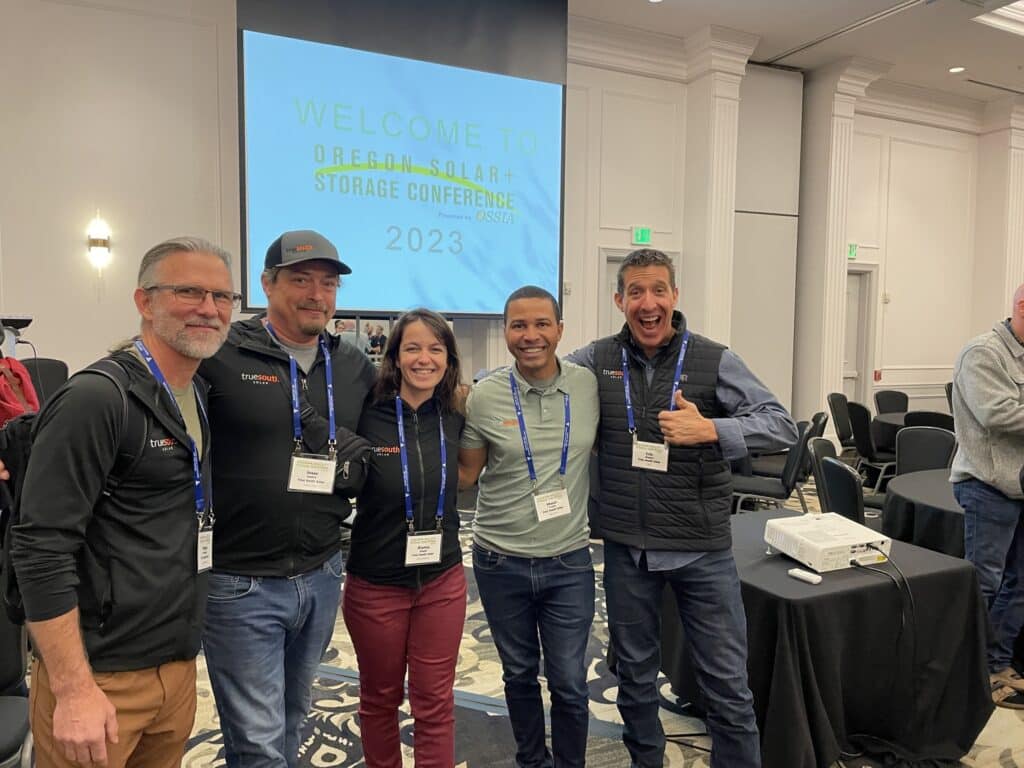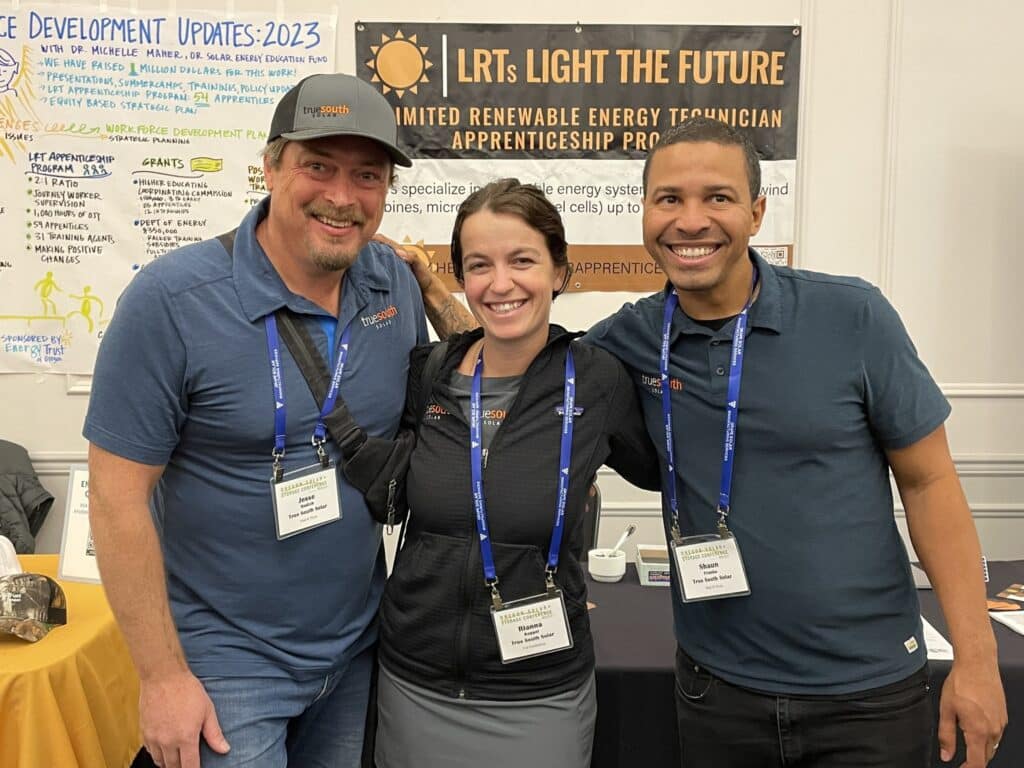
This November, True South Solar attended one of the largest gatherings of solar professionals in the Pacific Northwest. The Oregon Solar + Storage Conference (OSSC) is Oregon’s largest trade conference for the solar and storage industry. The conference was held November 7-9 in Portland at the Crowne Plaza Hotel. There were various general sessions, keynotes, technical discussions, policy-focused panels, and happy hours to network with colleagues throughout the state. Every day was valuable to the team, and discussions around code and storage kept us informed. The electrical code continues to be updated to keep pace with the demand in the industry. Networking was also an important part of the conference and helped us keep tabs on what other installers were doing. Sponsors included the Energy Trust of Oregon, Green Tech Renewables, and the Oregon Department of Energy.

The conference was put on by the Oregon Solar + Storage Industries Association (OSSIA), a trade association founded in 1981 to promote clean, renewable, solar, and storage technologies. OSSIA members include businesses, non-profit groups, and other solar and storage industry stakeholders. They work to promote renewable solar and storage technologies in Oregon. Engagement in the solar industry has always been important to us. We’ve been OSSIA members since the company started in 2010 and continue to stay involved and engaged in various committees and events throughout the year.
Educational Opportunities
We take solar and storage seriously! Continued education is essential to being an energy expert, because the solar industry is constantly changing. True South Solar had eight employees attend; from our installation crew to sales to permitting, there was something for everyone. We learned about new Oregon solar grants, programs, codes, and policies. A solar-plus-storage course taught participants the current regulations and standards for solar systems that integrate energy storage systems.
There were over 80 speakers and panel discussions on various technical, sales, and policy topics. The conference provided opportunities to stay current on the latest trends, equipment, and policies. There was also a career expo for anyone interested in entering the solar industry. Continued education is essential to being an energy expert

Key Takeaways
The solar industry is growing steadily thanks to ongoing federal policy support. Growth has primarily been fueled by the Inflation Reduction Act (IRA), which extended the tax credit for ten years. Not only was the tax credit extended, but it also now includes batteries. Customers that include a storage component to their solar can also claim the federal tax credit. Nonprofits are also now eligible for direct pay instead of the tax credit. Historically, the investment tax credits were not accessible to nonprofit entities. This exciting opportunity opens the door to solar to a new segment of the market.
Possible changes to net metering policies were one of the hottest topics at the conference. Idaho Power, one of three investor-owned utilities, has asked the Oregon Public Utility Commission (PUC) to change its net metering policies. These changes would severely reduce the value of net metering credits. These changes would also be retroactive for all customers who went solar after December 2019. This has opened the door for Portland General Electric (PGE) and Pacific Power to begin to explore changes to their net metering policies. Net metering is a powerful tool for homeowners and businesses to capture the value of their solar systems. We will continue to monitor the proposed changes and advocate for policies that continue to drive the solar industry forward.
